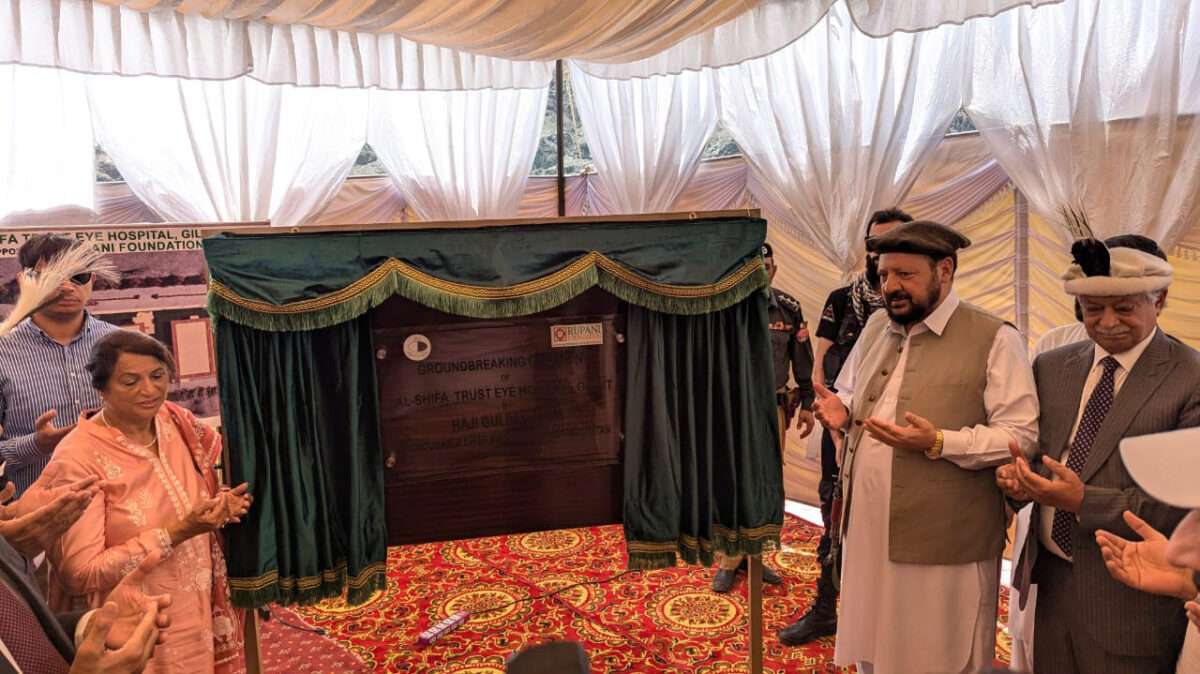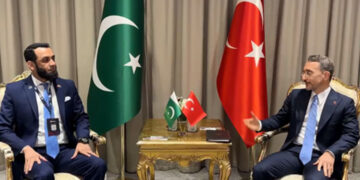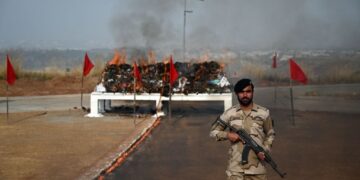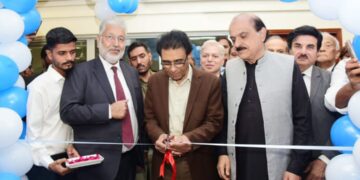Al Shifa Trust starts construction of an eye hospital in Gilgit
The project worth Rs 355 million will be completed by the end of 2026
The facility will provide free treatment to 18 lakh needy patients
Karachi: On Saturday, the Chief Minister of Gilgit-Baltistan broke ground on the cutting edge Gilgit-Baltistan Eye Hospital, which will be run by the Al-Shifa Trust and offer free, high-quality eye care to everyone in the area.
Parliamentarians, the Chairman of the Rupani Foundation, Force Commander FCNA Major General Kashif Khalil, dignitaries, local notables, and donor representatives attended the ceremony.
Al-Shifa Trust President Maj. Gen. (retired) Rehmat Khan, Chief of Medical Services Dr. Wajid Ali Khan, Project Director Brig. (retd) Arshad and others were also present at the event.
Chief Minister Gulbar Khan, Naseeruddin Rupani, Chairman of the Rupani Foundation, and other dignitaries commended the trust on this occasion for their concern for the people’s lack of access to high-quality eye care in the isolated region.
They said that in the past, those with eye issues had to go to Islamabad, but many of them could not afford to do so. They also mentioned that things will get better now, which will help the locals.
Speakers noted that this hospital would cover 18 lakh people living in 14 districts of GB, of whom 10 to 15 percent face eye issues due to poverty, extreme weather, and improper living conditions.
They said the hospital will be established in a 20-kanal area on the Karakoram Highway, which is within reach of locals because it is just three kilometers from the city.
President of Al-Shifa Trust, Maj. Gen. (retired) Rehmat Khan, thanked the GB Government and donors for their cooperation. He said that the GB hospital will be able to treat 150 OPD patients per day and conduct 50 surgeries daily.
He announced that the area’s first modern hospital, estimated to cost 355 million rupees, would be completed by the end of 2026. He said that the Rupani Foundation would pay half of the cost, while the trust would arrange the remaining half through donations.
He pointed out that eye diseases, particularly cataracts, severely affect people in GB, necessitating the provision of a facility at their doorstep.
We will initially provide OPD facilities and cataract surgeries but later include other more sophisticated procedures such as retina, glaucoma, cornea, and oculoplastic treatments.
According to Maj. Gen. (retired) Rehmat Khan, a special feature will be an OPD facility for people suffering from depression.
He added that the Rawalpindi Eye Hospital has started training the paramedics who will work in the GB hospital, and the GB students have preferential access to a diploma course in eye care. He said that the outreach programs would provide specialised eye care services in isolated places, and the trust would keep organising free eye camps and school screenings in Gilgit-Baltistan.














